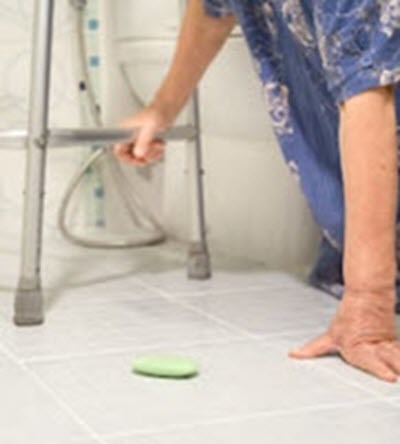
The annual economic costs of elderly falls exceeds $50 billion. Many of these costs are associated with nursing home falls, where about 60 percent of residents fall each year. Many of these victims are repeat fallers, so their injuries are often more severe. These victims also have pre-existing conditions that make them more susceptible to a serious fall. More on these things below.
Even if a pre-existing condition contributed to the likelihood and/or severity of a fall, a Columbia personal injury lawyer can obtain maximum compensation for these injuries in court. Usually, insurance companies cannot use a victim’s vulnerabilities as an excuse to reduce or deny compensation. This compensation usually includes money for economic losses, such as medical bills, and noneconomic losses, such as pain and suffering.
Slip-and-Fall Risk
Common physical conditions among older people, such as gait disorders and age-related macular degeneration (AMD), increase the risk of a serious fall.
People with gait disorders don’t lift their feet when they walk. Instead, they shuffle their feet. So, they have a hard time negotiating stairways, even if they’re only a few steps up or down. Additionally, when these victims stumble, they typically cannot regain their balance. Therefore, even a seemingly small hazard that a younger person could easily negotiate often causes a severe fall.
AMD is the deterioration of key eye muscles. This degradation affects the straight-ahead vision that people need for good balance. Additionally, this condition compromises a victim’s overall vision.
Outdoor ice falls are a good example. When older people walk on sidewalks or across parking lots, they often cannot see icy patches, especially at night. That’s especially true if the hazard is black ice. This thin, translucent ice is much slicker than other kinds of ice.
A Columbia personal injury attorney often uses these physical conditions to overcome the open and obvious doctrine, a common fall injury defense in South Carolina. Owner’s usually aren’t responsible for injuries if an open and obvious hazard causes a fall.
To older people, hazards that are open, obvious, and avoidable to most people are often hidden and unavoidable. They cannot avoid hazards because of AMD, and they cannot help but fall because of a gait disorder.
Normally, owners are liable for slip-and-fall injuries if the victim was an invitee (person who had permission to be on the land and whose presence benefited the owner) and the owner knew, or should have known, about the injury-causing hazard.
Injury Severity
When younger people slip and fall, they may only scrape their knees or suffer other minor injuries. But when older people fall, there’s usually no such thing as a minor injury.
Many older adult fall victims are repeat fall victims. Frequently, the injuries they sustained in the first fall, like a broken hip, don’t entirely heal. As a result, they’re prone to reinjury. These reinjuries are much harder to treat than original injuries.
Additionally, many older victims have pre-existing medical conditions, like arthritis, which contribute to injury severity. That’s especially true among nursing home fall victims. Generally, these individuals wouldn’t be in nursing homes if they didn’t have such pre-existing injuries or medical conditions.
Nursing home and other older adult fall injury claims are quite complex. Usually, an out-of-state or offshore holding company owns the property at issue.
Rely on a Thorough Richland County Lawyer
Injury victims are entitled to significant compensation. For a free consultation with an experienced personal injury lawyer in Columbia, contact the Marc Brown Law Firm. Attorneys can connect victims with doctors, even if they have no insurance or money.
Source:
ncbi.nlm.nih.gov/pmc/articles/PMC6089380/